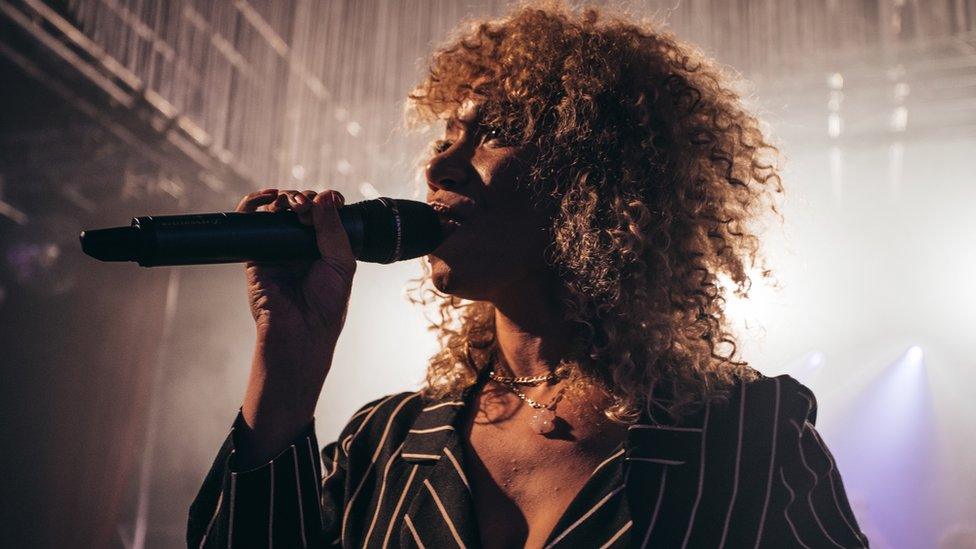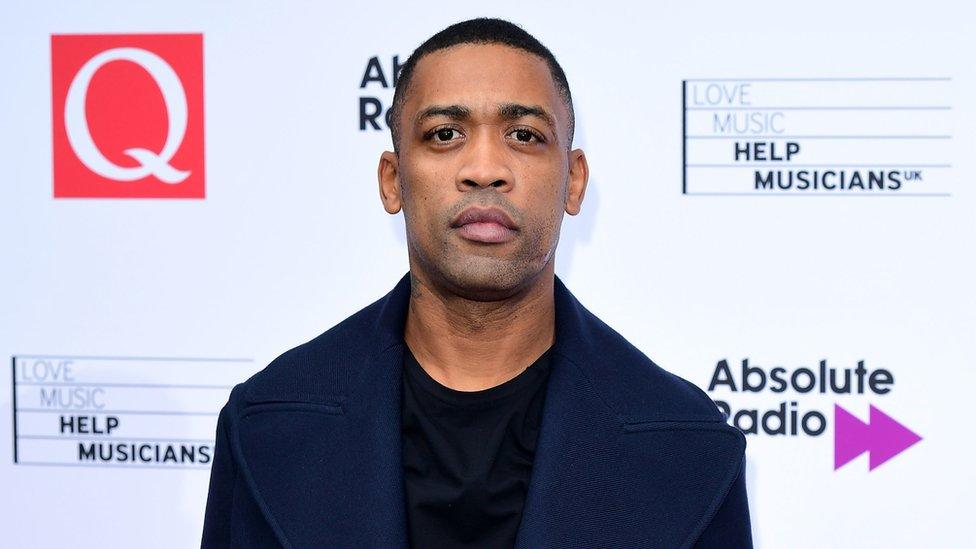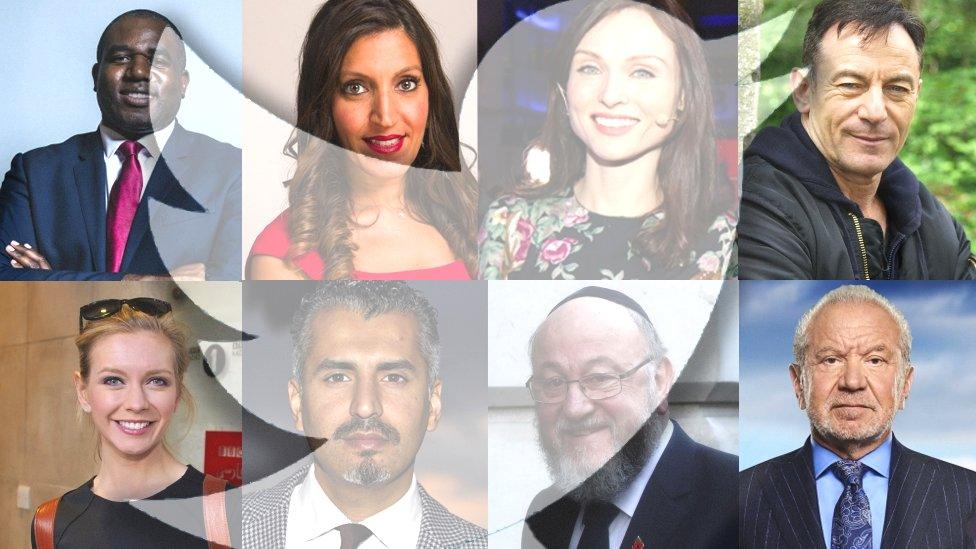Wiley anti-Semitism: 'How it feels to be black and Jewish'
- Published

Anti-Semitic posts from Wiley on social media have been making headlines for days, with the rapper's latest outburst - on his personal Facebook account - aimed at his Jewish critics.
BBC Radio 1 Newsbeat has spoken to black Jewish people about how posts like these - and the conversations around them - make them feel.
Autumn Rowe is a singer-songwriter who has written for Little Mix, Dua Lipa and Leona Lewis.
"The fact is I am a black person, I can also be a Jewish person, I can also be a woman and a vegan," she told us earlier this week.
"But no matter what, you can't take away from me that I'm a black person and you cannot take away my experience."

Autumn Rowe wants more people in the industry to use their platform to speak out
She says she has been disappointed by the lack of reaction in the UK music industry to Wiley's comments.
"Some people have spoken out, like Labrinth for example.
"I had a long talk with him but I'm seeing other people who are silent and I don't want to attack them or make them feel guilty in any way, I just would like to know why.
"As artists and writers, we have a way to communicate to the entire world - we have the platform of music - it's a universal language."
Wiley's social media posts started on Friday evening, when many Jewish people would have been enjoying Shabbat, the Jewish day of rest and time to spend with family and friends.
He was subsequently dropped by his management, with his former manager John Woolf saying he was "shocked and saddened" by the comments.
Allow X content?
This article contains content provided by X. We ask for your permission before anything is loaded, as they may be using cookies and other technologies. You may want to read X’s cookie policy, external and privacy policy, external before accepting. To view this content choose ‘accept and continue’.
Wiley, real name Richard Cowie, was challenged by journalist and podcaster Nadine Batchelor-Hunt.
"He was saying that Jewish people didn't effectively care about black people - I told him he was wrong, because I'm both black and Jewish," she told the BBC.
"He responded by telling me that I wasn't really black and then he followed me on Twitter, which meant I could inbox him.
"I asked him why he was doing what he was doing. I just didn't get a response."
Allow X content?
This article contains content provided by X. We ask for your permission before anything is loaded, as they may be using cookies and other technologies. You may want to read X’s cookie policy, external and privacy policy, external before accepting. To view this content choose ‘accept and continue’.
Nadine says she found his comments upsetting because they created "awful divisions between two communities" by pitting Black and Jewish people against each other.
This is something Autumn felt too and that by creating divisions with his comments, Wiley was detracting from the fight against all forms of racism.
"It's really important that Jewish people who are really upset right now are also really upset about Black Lives Matter," Autumn says.
"Anti-Semitism and what's happening to black people with police brutality and systematic racism are completely separate things but at the same time, anti-Semitism is real and it's very dangerous.
"It should not be tolerated and also deserves attention."
Home Secretary Priti Patel has asked Twitter and Instagram why Wiley's posts were allowed to stay on the platforms for so long.
Some of his most inflammatory social posts have been removed but many are still visible, allowing for anti-Semitism to continue in the comments sections.
Jodeci Joseph, a 23-year-old Black Jewish motivational speaker, told BBC Radio 5Live: "There seems to be some sort of gap between the knowledge and awareness of what anti-Semitism is or what is classed as anti-Semitism and how it can hurt Jewish people.
He says because there are so few Jews in the UK that many people have never met someone Jewish and so have nothing to base their opinions on.
"To see this comments from an artist not get taken down and then to see other people's comments is just scary - there's so much negativity about Jews and it seems the only people speaking out are my Jewish friends."


Follow Newsbeat on Instagram, external, Facebook, external, Twitter, external and YouTube, external.
Listen to Newsbeat live at 12:45 and 17:45 weekdays - or listen back here.
- Published25 July 2020

- Published26 July 2020

- Published27 July 2020
